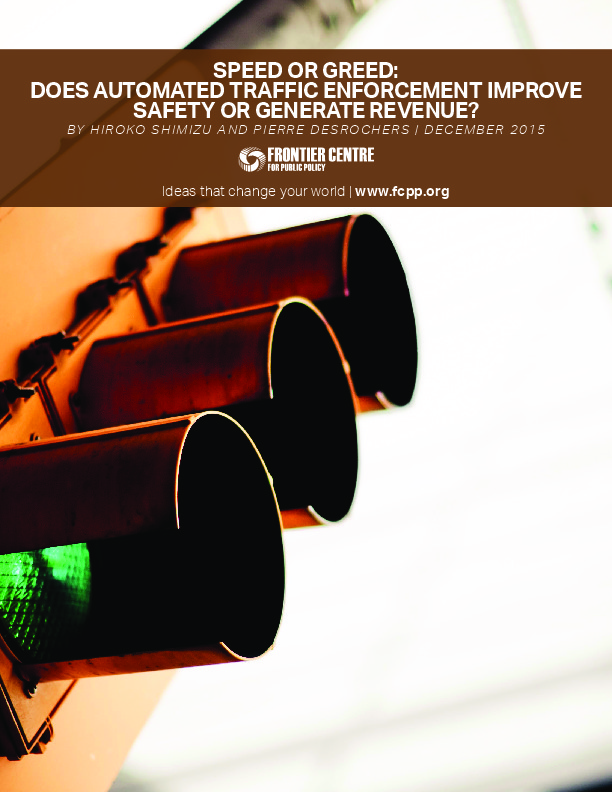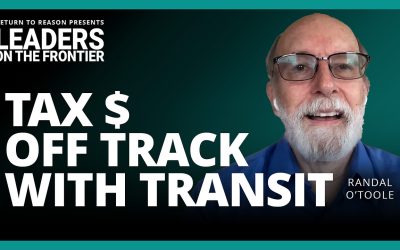Better engineered cars along with the adoption of seat belts and other road safety measures and legislation have contributed to a 58% decline in road fatalities in Canada between 1970 and 2009. The fatality rate is now so low that almost twice as many Canadians die from falling accidents than traffic collisions. Between 1994 and 2009, the number of traffic-related serious injuries and total injuries also decreased drastically in spite of increased numbers of registered vehicles and licensed drivers. Despite historically low fatality and injury rates, however, many voices in municipal governments, police forces, and activist groups argue, based on “speed kills” rhetoric and alleged social costs of traffic collisions, that these numbers could be further reduced through ever more ubiquitous automated traffic enforcement (ATE) technologies which are already used widely in about 25 Canadian municipalities, most prominently Calgary, Edmonton, and Winnipeg.
Despite ATE supporters’ contention that artificially low speed limit settings, increased fines, and rigorous enforcement can deter dangerous driving behaviours and improve public safety, little credible evidence actually supports this argument. On the other hand, there is some evidence that the implementation of proven engineering practices (such as better signage, speed limit setting more in tune with actual driving practices and slightly longer yellow light times) are the most effective way of reducing traffic violations and collisions.
Whatever the jurisdictional or regulatory context in which they are implemented, ATE programs all have the potential to create perverse incentives and conflicts of interests over revenue generation, especially when municipal and police budgets are facing shortfalls. Much evidence also suggests that many government institutions systematically underestimate the actual costs of ATE programs and often justify their existence on inflated social benefits. Program cost overruns, in turn, are ultimately shouldered by otherwise law-abiding drivers and other taxpayers. And even though in most cases a relatively small fraction of provincial and municipal revenues is derived from such fines and penalties, one must ask about the ethics of budgeting fines and penalties as regular revenue sources when they are often imposed for very minor offences and justified as public safety measures.
In Manitoba, where fines are so large as to be unaffordable, traffic tickets become an extremely regressive form of covert taxation, as it disproportionally affects people of lesser means. Also, a deliberate attempt to move traffic enforcement towards targeting the majority of careful drivers rather than dangerous individuals can only result in growing public distrust towards governmental authorities and politicians.
The ultimate goal of governmental authorities towards road transportation should be to promote safety, not revenue generation for its own sake. This can best be achieved through fact-based engineering approaches (e.g., design and maintenance of the road, adequate signage, speed limit setting), education, and sensible enforcement (which would include ATE program operations). And in the end, the additional revenues generated by ATE programs should be dedicated to further promoting road safety by being invested in improved infrastructure rather than become a permanent revenue generation fixture in governmental budgets.



